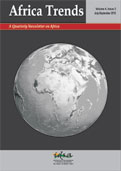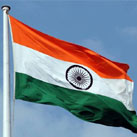How to Do Things with International Law
Associate Fellow, IDSA, Dr Rajeesh Kumar’s review of the book ‘How to Do Things with International Law’ by Ian Hurd has been published in Volume 09 of ‘The Rest: Journal of Politics and Development.
- Published: 24 April, 2019












